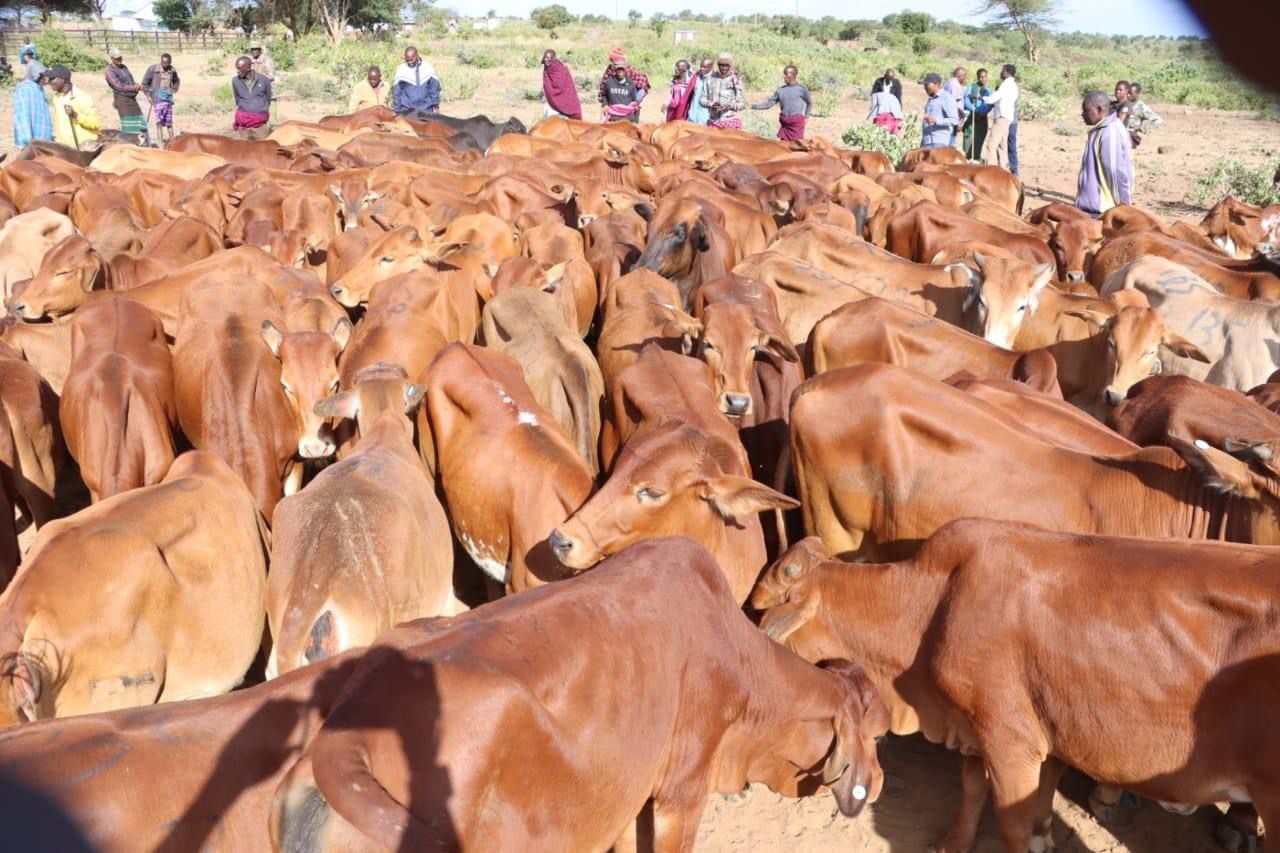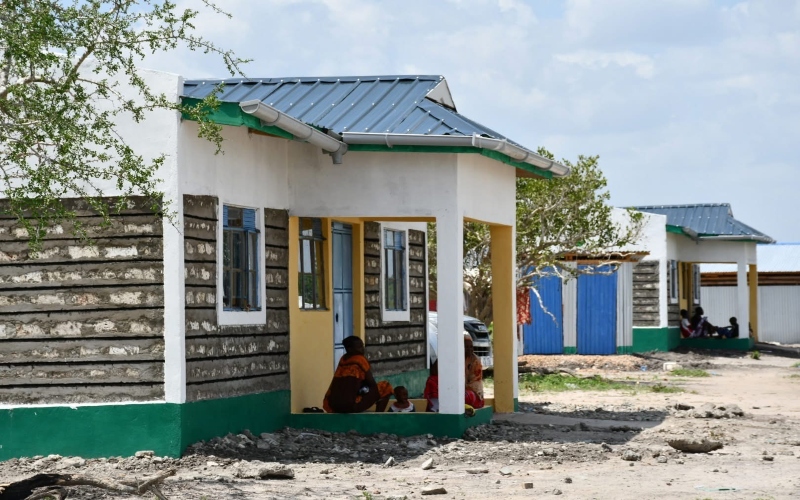Antibiotic use on Kenya’s dairy farms is putting consumers and animals at risk

Antibiotics are sometimes used as “quick fixes”, to avoid more costly management measures like regular disinfection, waste management, routine vaccination or provision of clean drinking water.
Farmers often use antibiotics to keep their livestock healthy. They’re sometimes used as “quick fixes”, to avoid more costly management measures like regular disinfection, waste management, routine vaccination or provision of clean drinking water.
Animal husbandry now accounts for about two-thirds of the global consumption of antibiotics. As livestock and fish production grows, by 2030 the consumption of antibiotics is projected to increase by 67 per cent.
More To Read
- Inside Sh433 billion drive to cut methane emissions from African farms
- Taita Taveta farmers to benefit from commercialisation farming projects
- Kilifi farmers reap rewards from community-driven goat farming project
- State to deploy 230 milk coolers to reduce wastage across 41 counties this year
- Farmers boost milk output by 13 per cent with prices relatively stable
- Antibiotic-resistant infections to kill 39 million people by 2050 – Lancet
Worryingly, this overuse in food animal production can create problems for both animals and people.
It can contribute to the development of antibiotic-resistant bacteria which, through food or environmental exposure such as drinking contaminated water, can be transmitted to people.
This means that some antibiotics may become ineffective in treating human infections. Antibiotic-resistant infections are associated with 4.95 million deaths globally every year. Sub-Saharan Africa accounts for 22 per cent of these.
Similarly, animals can also become infected with antibiotic-resistant bacteria. This leads to infections that are difficult or impossible to treat.
Our latest study, which focused on the central Kenyan highlands, looked at antibiotic use on smallholder dairy farms as well as antibiotic quality (substandard or counterfeit antibiotics).
Kenya is one of the largest milk producers in Africa and one of the countries with the largest per capita consumption of milk. About 80 per cent of the milk produced in Kenya comes from smallholder farmers.
We found that smallholder farmers weren’t using antibiotics properly and were buying poor-quality products. Also, traces of some antibiotics were found in milk.
This puts the health of both people and animals at risk.
Antibiotic access and use
For our study, we collected data from 248 dairy farms and 72 veterinary drug stores between February 2020 and October 2021. This included milk samples and the antibiotics themselves.
Most dairy farms surveyed reported using antibiotics at least once in the past year. This is not unusual – cows get sick. Dairy cows are especially prone to getting udder infections.
Antibiotics were used to treat and to prevent infections. Most were obtained through animal health service providers. A small number (six per cent) were bought directly from veterinary drug stores or other farmers.
Antibiotics were often sold without a prescription, and based on farmers’ own diagnosis. These are imprudent practices – the wrong antibiotic could be used to treat an infection or antibiotics could be overused.
The improper or excessive use of antibiotics in dairy farming can lead to the development of antibiotic-resistant bacteria. This then leads to economic losses for farmers, because animals will be less productive and the cost of treatment will grow.
It’s estimated that, as a result of antimicrobial resistance, livestock output could fall by 11 per cent by 2050, with the highest decline in low income countries.
There’s also the risk of these antibiotic-resistant bacteria being transmitted to humans, either directly through contact with animals or indirectly through the consumption of milk and dairy products. This can lead to infections that are difficult to treat, posing a public health risk.
Antibiotics found in milk
Also worrying, in this study we detected nine antibiotics in milk. Three samples exceeded global standards. Antibiotics can get into milk supplies when withdrawal times are not strictly followed.
The presence of antibiotic residues in milk – even at low levels – can pose health risks to consumers, particularly those who are allergic to specific antibiotics.
Even for those who aren’t allergic, prolonged exposure to low levels of antibiotics may contribute to the development of antibiotic-resistant bacteria.
Quality of antibiotics
The study also examined the quality of antibiotics available in veterinary drug stores in central Kenya.
Poor quality, substandard, or counterfeit antibiotics can lead to ineffective treatment and prolonged illness. Low-quality antibiotics are even more likely to contribute to the development of antibiotic-resistant bacteria. This is because they won’t fully eradicate the pathogen (disease-causing bacteria), allowing them to adapt and become resistant.
Almost 44 per cent of the antibiotics we tested were of poor quality. This has considerable implications for the efficacy and safety of these drugs. It can also contribute to antibiotic resistance.
Implications
The findings of the study underscore the need for better management practices on Kenya’s dairy farms. This includes: stricter regulation of antibiotic sales, improved veterinary oversight, and education of farmers about the risks of antibiotic misuse.
For a country like Kenya, where agriculture plays a significant role in the economy, ensuring livestock is healthy and productive is crucial for both farmers and the country.
We recommend a few steps for policymakers to take. These are strengthening regulations around antibiotic use in livestock, enhancing surveillance and monitoring systems for antibiotic residues in milk, improving the quality control of antibiotics sold in veterinary drug stores, educating farmers about the responsible use of antibiotics and promoting better animal husbandry practices that reduce the reliance on antibiotics.
Story by The Conversation
Top Stories Today
















































